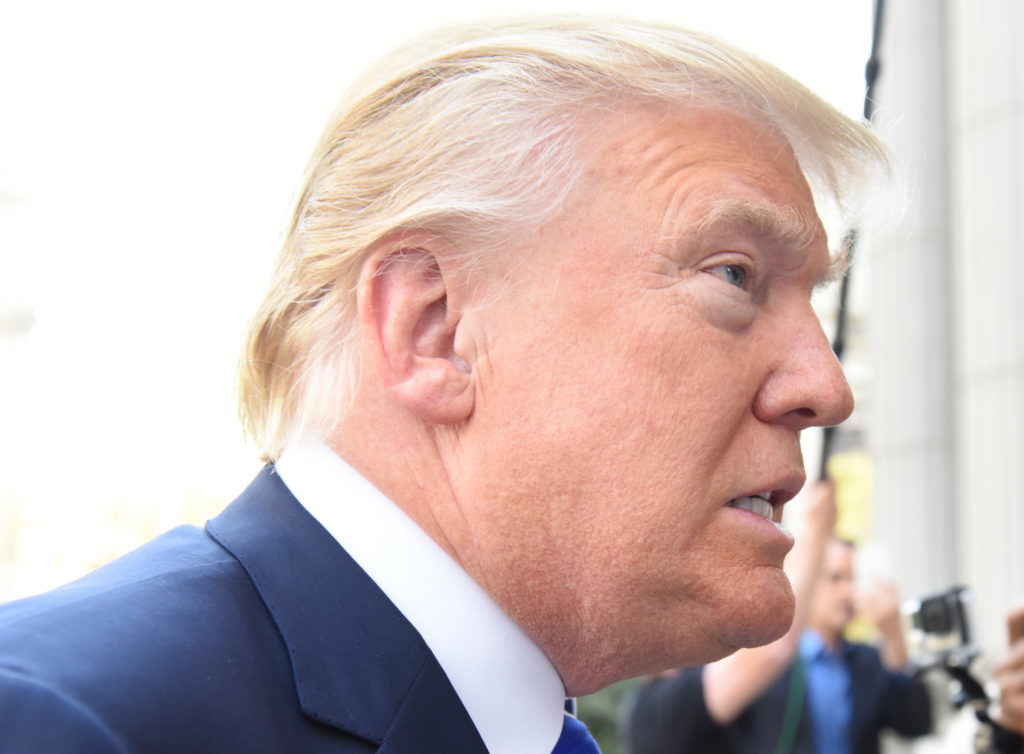Donald Trump just found a whole new way to make a total fool of himself

The gloves definitely came off when Emmanuel Macron and Donald Trump sparred with each other on the day before this year’s NATO summit which marks the alliance’s 70th anniversary. In a freewheeling press conference that went on much longer than scheduled, the two world leaders touched on a variety of contentious topics and, in the end, they found very little common ground to stand on.
The exchange started out rather civilly with the French president allowing his American counterpart to do a quick victory lap about the increase in NATO members’ military spending, for which Donald Trump likes to take credit after having relentlessly pressured allies to up their game for the past three years. “For the most part, they are all stepping up,” Trump acknowledged graciously, before segueing into a boast about the U.S. economy that seemed oddly out of place in the context: “We’re able to go down a little bit. We were paying 4 to 4.3 percent of the largest GDP ever. Nobody has ever had a GDP like we have right now. Nobody’s come close.”
Emmanuel Macron made it clear that he recognized America’s over-proportional contribution to NATO’s military budget and that he agreed with Trump’s position on the issue of burden sharing: “This is perfectly true that the U.S. over-invested decade after decade and it is number one by far.” Then, the French president went on to state “That’s why I am a strong supporter of a stronger European component in NATO, which is exactly what we are doing.” Here, Macron was probably alluding to talks between France and Germany about increased military cooperation with a view to reducing costs – an idea that the American president had interpreted and rejected as a sign of European antagonism against the U.S. at the time.
The problem that once more became obvious during the presser is that Trump still does not understand how NATO works and that the funds he has been pushing alliance members to come up with go to the national militaries. Instead, Donald Trump seems to be wed to the idea that it is his job as the American president to collect fees from member states as if the alliance was one of his golf clubs and “delinquent” members were stealing money out of his own pocket. His purely transactional attitude, which focuses exclusively on budgets and military spending, got Donald Trump a sharp rebuke from the French president during the press conference: “When we speak about NATO, it’s not just about money. We have to be respectful with our soldiers. The first burden we share, the first cost we pay, is with our soldier’s lives.”
To Macron – whose attitude towards the alliance that was formed seventy years ago as a protective shield against the Soviet Union differs sharply from Donald Trump’s – the most burning question that needs to be asked with regard to the future of NATO is this: “What is the objective?” The apparent lack of clarity regarding a shared purpose was what led the French president to make the provocative statement that NATO may be “braindead” in its current state. However, he did not come to London to sign the alliance’s death certificate. Instead, he suggested an objective during the press conference and made a firm commitment to it: “To protect our partners against external threats. And France will do it, and we will have full solidarity with our eastern and northern states in Europe.”
There are currently a number of eastern and northern states in Europe that would very much like to hear the United States commit – loudly and clearly – to the protection of their national sovereignty and territorial integrity, but such a statement does not seem to be forthcoming under the current administration.

